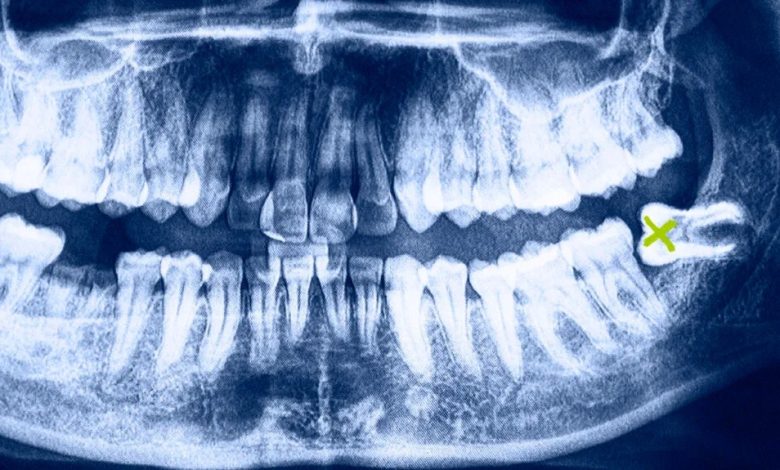How Long Does Wisdom Tooth Pain Last?

Wisdom tooth pain typically lasts for a few days to a week. Dealing with wisdom tooth pain can be an uncomfortable and frustrating experience.
When these third molars start erupting in your late teens or early twenties, they often cause pain and discomfort due to their size and positioning. The pain can vary from mild to severe, affecting your ability to eat, speak, and carry out daily activities.
While the duration of wisdom tooth pain can vary from person to person, it generally lasts for a few days to a week. In some cases, the pain may subside on its own as the tooth continues to erupt, but in more severe cases, extraction of the impacted tooth may be necessary. This article will explore the causes of wisdom tooth pain, methods to alleviate discomfort, and when it may be time to consult a dentist or oral surgeon for further treatment.
Causes Of Wisdom Tooth Pain
Wisdom tooth pain can vary in duration depending on the underlying causes. One common cause of such pain is the impact of wisdom tooth eruption on neighboring teeth. As the wisdom tooth grows, it can push against adjacent teeth, causing discomfort and pain. Another cause may be infection or inflammation of the surrounding gum tissue. When the wisdom tooth partially erupts, it creates a small opening in the gum, which can easily trap food particles and bacteria, leading to infection and inflammation. This can result in persistent pain and discomfort.
It is important to note that the duration of wisdom tooth pain can vary from person to person. Some individuals may experience pain for a few days or weeks, while for others, it may linger for a longer period. If you are experiencing wisdom tooth pain, it is advised to seek professional dental care to identify the cause and obtain appropriate treatment.
Duration Of Acute Wisdom Tooth Pain
Acute wisdom tooth pain can vary in duration depending on several factors. The initial onset and intensity of pain play a significant role in determining how long the discomfort will last. For some individuals, the pain may only last a few days, while for others, it can persist for a week or more. Factors such as the position and alignment of the wisdom tooth, the presence of any infection or inflammation, and the individual’s pain tolerance can also impact the duration of acute pain. It’s important to note that if the pain persists for an extended period or becomes severe, it’s essential to seek immediate dental attention. A dental professional can provide an accurate diagnosis and recommend appropriate treatment options to alleviate the pain and prevent any further complications.
Recovery And Healing Time
Time Taken For Gum Tissue To Heal After Extraction Or Infection Subsides
The duration of wisdom tooth pain and the healing process can vary depending on several factors. After the extraction or subsiding of any infection, the gum tissue typically takes around 7 to 10 days to heal. However, the complete recovery and healing time may take longer.
Factors influencing the healing process include:
| Factors | Effect on Healing Time |
|---|---|
| Complexity of the extraction | Can prolong healing time |
| Level of infection | May require additional treatment and delay healing |
| Patient’s overall health | Can impact the healing process |
| Correct aftercare | Proper care can expedite healing |
It is essential to follow the instructions provided by your dentist or oral surgeon to promote healing and minimize any discomfort. This includes adopting a soft diet, practicing good oral hygiene, taking prescribed medications, and attending follow-up appointments.
Managing Wisdom Tooth Pain
Managing wisdom tooth pain can be a challenging task, but there are several remedies that can provide temporary relief. Over-the-counter pain medications like ibuprofen or acetaminophen can help reduce the pain and inflammation. Orajel or similar topical numbing gels can also be applied directly to the affected area for immediate relief. Rinsing your mouth with warm saltwater a few times a day can help reduce swelling and promote healing.
For more severe wisdom tooth pain, professional treatment options may be necessary. Your dentist may recommend a wisdom tooth extraction if the pain is caused by impaction or overcrowding. In some cases, prescription pain medications or antibiotics may be necessary to manage the pain and prevent infection.
Remember to consult with your dentist before trying any home remedies or medications. They will be able to provide personalized advice and recommend the most appropriate treatment for your specific situation. By taking proactive steps to manage your wisdom tooth pain, you can alleviate discomfort and promote oral health.
Signs Of Complications
Wisdom tooth pain typically lasts for a few days to a week, but in some cases, complications can arise leading to longer-lasting discomfort. One of the signs of complications is the spreading of infection to the surrounding areas. This can occur when bacteria accumulate around the impacted tooth, causing the infection to spread to the gums, jaw, and even the throat. In such cases, the pain and swelling may persist beyond the usual time frame.
If you experience persistent pain and swelling that continues for more than a few days, it is important to seek dental care. Your dentist can evaluate the situation and provide appropriate treatment to alleviate the discomfort and address any complications. In some instances, the wisdom tooth may need to be extracted to prevent further complications and promote healing.
Importance Of Dental Consultation
Regular dental consultation plays a crucial role in the early detection and prevention of complications related to wisdom tooth pain. By seeking professional advice, you can gain valuable insights into the duration and severity of your pain. A dental expert can assess the underlying causes and recommend appropriate treatment options, such as extraction or other alternatives.
Dental consultations provide an opportunity to address concerns and find personalized solutions for your specific needs. Through a comprehensive examination, your dentist can identify potential complications, such as impaction, infection, or damage to adjacent teeth. Early detection of these issues can prevent further damage and help alleviate your pain.
Remember, it is essential to consult a dental professional who can guide you through the best course of action. Seeking expert advice ensures that you receive the most effective and tailored treatment for your wisdom tooth pain, leading to faster relief and improved oral health.

Credit: www.lighthousedentalcentre.com
Frequently Asked Questions On How Long Does Wisdom Tooth Pain Last?
How Long Does It Take For Wisdom Teeth To Stop Hurting?
Wisdom teeth pain typically lasts for about a week or two. The exact duration varies depending on factors like individual healing ability and the complexity of the extraction. Proper oral care, pain medications, and cold compresses can help alleviate discomfort during this period.
What Are The Most Painful Days Of Wisdom Teeth?
Wisdom teeth pain can occur during the eruption process, usually between the ages of 17 and 25. It typically lasts for a few days, with the highest discomfort experienced on the third or fourth day.
Does Wisdom Tooth Pain Ever Go Away On Its Own?
Yes, wisdom tooth pain can go away on its own. However, it’s important to monitor the pain and seek professional advice if it persists or becomes severe.
How Do You Make Wisdom Teeth Stop Hurting?
To stop wisdom teeth from hurting, try using a warm saltwater rinse, over-the-counter pain relievers, or applying a cold compress. Avoid hard or sticky foods and practice good oral hygiene. If the pain persists, consult your dentist for further guidance.
Conclusion
Wisdom tooth pain can last anywhere from a few days to a few weeks, depending on various factors such as the complexity of the tooth extraction and the individual’s healing process. It is essential to follow your dentist’s advice and practice good oral hygiene to alleviate and prevent further discomfort.
By understanding the typical timeline of wisdom tooth pain, you can better prepare and manage your recovery.





